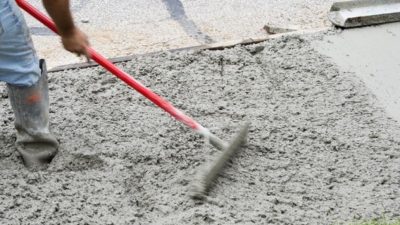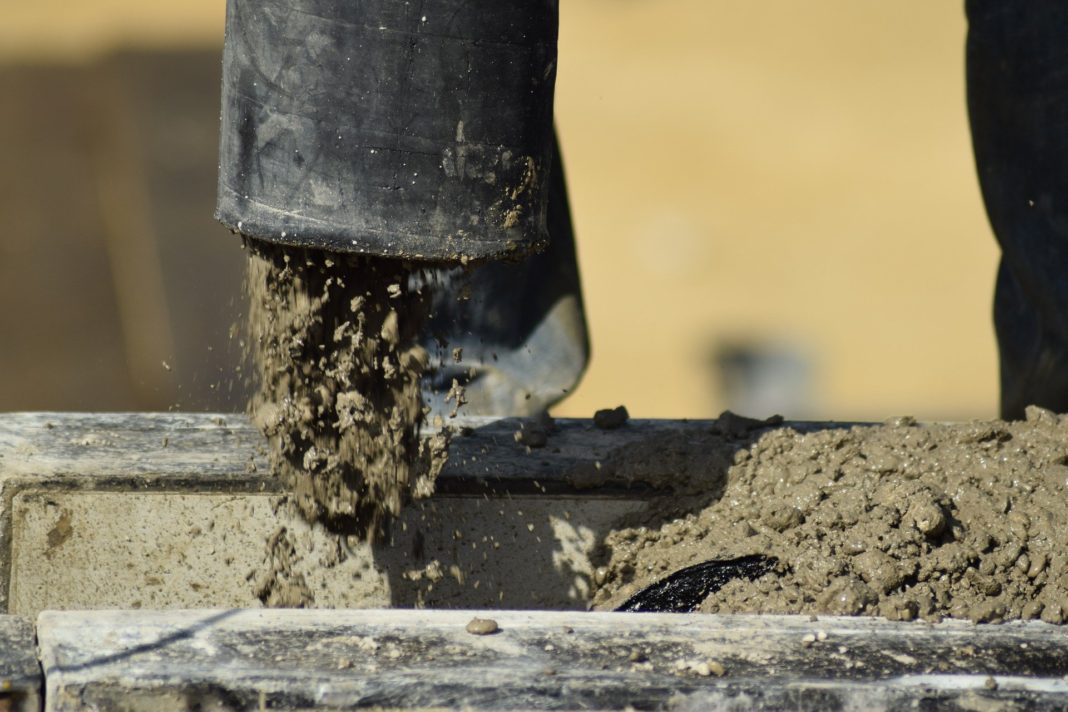Sustainability for any structure under construction is a matter of emphasis for any industry for which the structure is constructed. This is mainly to avoid wastage of natural resources like aggregates, earth (for manufacturing bricks), cement ingredients and water for maintaining structures constructed with poor quality as well as to save efforts and revenue for construction of new structures if the earlier one starts under-performing.
Construction chemicals are often used in their prescribed manner to provide sustainability to them though maintaining the highest quality and ensuring strict adherence to standard construction practices always stand in the lead role. With increasing sources of adverse conditions which can affect the sustainability of any structure, the time has arrived when innovative methods and ideas have to be precipitated to ensure that the constructed structure would be continuously available throughout its desired and designed functional life in spite of its exposure to any category of abuse for the structure to affect its sustainability.
Poor construction practices, substandard quality of construction materials, external conditions to cause corrosion to concrete or steel surfaces, etc are a few of many causes that have to be considered at the time of designing the structure as well as while considering the appropriate construction material.
This paper discusses the requirements of a sustainable structure and effective use of freshly invented concrete admixture CONCARE B 14 to create a sustainable structure.

Any sustainable structure has to be designed and created considering the following basic needs.
- High density with minimum porosity for the skin as well as core mass of the structure.
- Maintenance of alkalinity within concrete mass throughout its functional life.
- Minimum or near to zero corrosion to reinforcement steel.
- Chloride resistance at wet and hardened stages.
It has been elaborately examined and evaluated that ingredients of concrete are the basic elements to provide desired qualities to concrete. Their quality has to be as per standards set for each one of them. However few compromises during the actual construction either due to availability constraint, site limitation, time or fund restrictions etc; open avenue for innovative ideas to compensate for construction to proceed under adverse conditions.

CONCARE B 14 is that type of concrete admixture which has been very specially developed keeping in mind the creation of a sustainable structure irrespective of major adverse conditions. The functioning of CONCARE B 14 with respect to factors contributing sustainability to a structure is discussed below.
- High density concrete with minimum porosity for the skin as well as core mass of the structure.
This is one of the most important requirements for concrete manufactured under any condition. More the density of concrete, less are pores and crevices in its mass. Crevices in concrete mass often allow penetration and storage of corrosive elements which become active under conducive conditions and finally damage entire concrete mass. Such porosity gets generated generally due to poor construction practices, adverse atmospheric conditions, severe chemical corrosion etc. Porosity on its skin allows contaminants to penetrate inside the core mass of concrete members and deteriorate it over a period of time. Porous concrete mass deteriorates concrete without any indication before failure of members.
CONCARE B 14 has been formulated with its ingredients such that reaction product between its ingredients and impurities of construction materials – especially poor quality of water; are of micro fine size. These micro fine sized reaction products are designed with a specific purpose to ensure that said micro porosity of concrete mass gets plugged and concrete mass attains nearly zero porosity.
Laboratory results have proved that concrete manufactured with CONCARE B 14 has nearly the same water permeability of that glass.
- Maintenance of alkalinity within concrete mass throughout its functional life and minimum or near to zero corrosion to Reinforcement steel:
Salts present in substandard water and other construction materials are many. Few of them (for water) are dissolved and few are available in floating condition. Majority of salts generate acidic medium when they mix with water. They often act as catalyst for corrosion process of reinforcement bars because of initiation of ionic movement causing electrochemical reaction which ultimately results in steel corrosion (reinforcement bars).
As said earlier; reinforcement corrosion caused by salts present in substandard water is mainly due to creation of acidic medium around reinforcement bars. So if alkaline medium can be generated around reinforcement bars at the time of manufacturing reinforced cement concrete then effects of acidic medium even if it is created by salts of substandard water, it will not deteriorate reinforcement steel. It is a fact that concrete is having alkaline pH so the boost of alkalinity within concrete mass is always advantageous for concrete.
CONCARE B 14 has been suitably enriched with an alkaline substance to ensure that alkalinity is maintained for the total concrete mass till its hydration period and even thereafter. Its dose has been so meticulously and adequately fixed for being a part of CONCARE B 14 that it maintains alkalinity within concrete mass and also around reinforcement steel by taking into account of its loss due to its reaction with contaminating salts present in substandard water.
Laboratory results of ASTM G 109 have proved that corrosion of reinforcement present in RCC members manufactured with CONCARE B 14 is in the stage of “no possibility of corrosion”.
- Chloride attacks at wet as well as at a hardened stage.
Chlorides and Sulphates are those salts which have severe adverse effects on concrete mass. They are active in their chemical nature and have a tendency to react with concrete ingredients during and even post hydration stages of concrete. They are like silent killers. They depolarise cement which directly affects its binding properties and once the main function of cement which is its binding of ingredients to create homogeneous concrete matrix is adversely affected, the entire concrete mass starts under-performing.
Chloride has the highest detrimental effects on concrete matrix and its reinforcement. It reacts with ingredients of cement and with steel surfaces to sequentially deteriorate both of them and create heterogeneity in concrete mass with heavy corrosion for reinforcement steel.
CONCARE B 14 has been designed with many of its sub-ingredients to effectively fight out chlorides at wet stage which gets revealed under results of RCPT and also at hardened stage which is revealed under result of ASTM C 114 07.
RCPT vales for concrete samples manufactured with sea water and CONCARE B 14 are placed below.
| Period | 28 days | 56 days | 90 days | 180 days |
| RCPT (in Coulombs) | 2414.70 | 2056.30 | 1981.00 | 1822.00 |
| Interpretation of RCPT Values: | Chloride ion permeability | |||
| 4000: | HIGH | |||
| 2000 to 4000: | MODERATE | |||
| 1000 to 2000: | LOW | |||
| 100 to 1000: | VERY LOW | |||
| < 100: | NEGLIGIBLE |
Result of ASTM C 114 07 for concrete samples manufactured with sea water and CONCARE B 14 at the end of 180 days of casting the sample shows value of 0.0375% by weight of cement which is much below the permissible value of 0.06% by weight of cement (for pre-stressed concrete), 0.10% by weight of cement (for conventionally reinforced concrete in moist environment and exposed to chloride) and 0.15% by weight of cement (for conventionally reinforced concrete in moist environment and not exposed to chloride).
CONCARE B 14 is a patented and revolutionary product for the construction industry in two major areas.
- To ensure sustainability to structures constructed using CONCARE B 14.
- To replace precious drinking water by salty water, saline water, sea water, hard water, bore-well water etc (except biological water from sewage treatment plants or effluent treatment plants) to save precious drinking water for drinking purposes.
Written By- Chirag K Baxi- BE (Civil), MBA (Construction Management)





